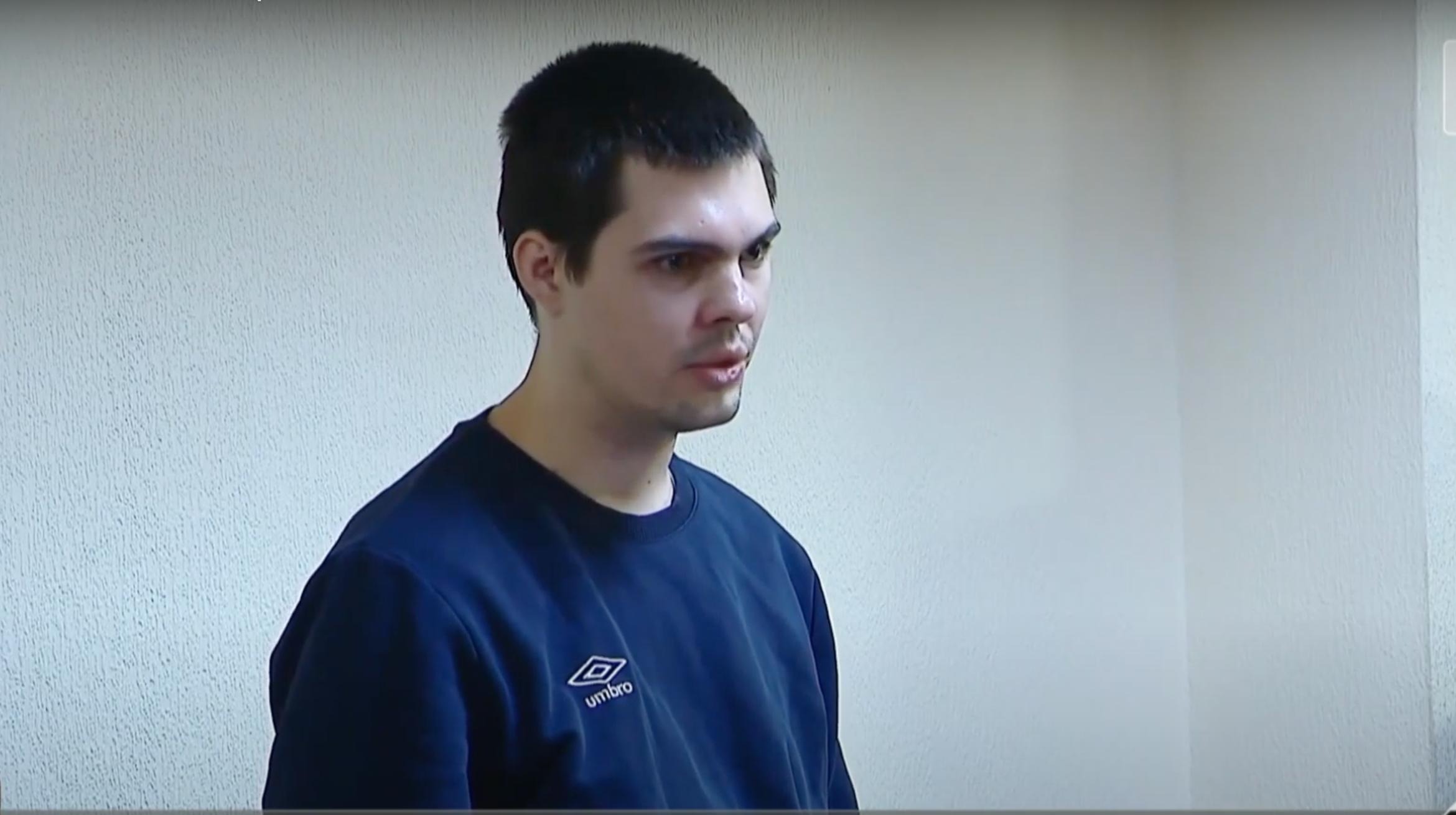Anton Chechin, a Russian activist detained in December, was sentenced to eight years and six months after being found guilty on serious drug charges, marking the 15th jail verdict among those arrested in the context of the pro-EU, anti-Georgian Dream protests since last November, and the first guilty verdict among protesters facing drug charges.
Tbilisi City Court Judge Jvebe Nachkebia delivered the verdict early on the morning of September 2. Chechin, 26, had faced charges of illegally purchasing and possessing a large quantity of narcotics, an offense punishable by eight years to life in prison. He pleaded innocent, and his defense argued that the police planted the drugs on him because of his activism.
“I fought for democratic values so that law enforcement and state agencies would work for the benefit of citizens against a totalitarian government,” Chechin said in his closing remarks shortly before the verdict announcement, according to the live updates by RFE/RL Georgian Service.
Chechin’s case was among six similar drug-related arrests, with all suspects detained in December at the height of pro-EU protests. All defendants pleaded not guilty, claiming the drugs had been planted by police. They linked their arrests to their activism, citing the lack of video evidence of personal searches and the absence of neutral witnesses. Two defendants, Giorgi Akhobadze and Tedo Abramov, were acquitted in August, marking the only not-guilty verdicts in protest-related criminal trials so far.
In the cases of Chechin and two other Russian citizens tried on similar charges, Anastasia Zinovkina and Artem Gribul, prosecutors argued that the translators accompanying police during the detentions acted as neutral witnesses. The defense, however, contested their impartiality, pointing to their alleged ties to the police.
Before moving to Georgia, Chechin was active in anti-Putin protests in Russia and supported opposition leader Alexei Navalny. He also joined demonstrations against Russia’s full-scale invasion of Ukraine. Amid the intensifying crackdown on dissent, he relocated to Georgia in spring 2022, where he met his wife, Manana Samkharadze. In 2024, the European Court of Human Rights ruled in his favor over his 2021 arrest at a pro-Navalny rally, finding Russia in violation of his rights and ordering compensation. According to his lawyer, Chechin further volunteered to help displaced Ukrainians once in Tbilisi, and joined local protests, first in May 2024 against the reintroduction of the foreign agents law and again in November and December.
Chechin said he was first detained on November 18, 2024, during post-election rallies, and threatened to stop protesting. He was again detained on December 3, 2024, after Georgia’s pro-EU protests erupted. According to his defense, he was stopped near his home early in the morning on his way to work. His lawyer said plainclothes police put him in a car and slipped a drug into his pocket, later described as a white powdery substance taken from his jacket. No video of the arrest exists.
He was charged under Article 260 of the Criminal Code with illegal purchase and possession of a large quantity of narcotics, punishable by eight years to life in prison. The prosecutor argued that he carried 7.5 grams of Alpha-PVP, a synthetic drug. They explained the absence of footage by saying Chechin resisted arrest. An interpreter, Shorena Tabatadze, was presented as a neutral witness, with the defense arguing that she was closely tied to one of the investigators and could not be considered an impartial witness. Chechin also said the interpreter only arrived after police seized the drugs that he said were planted.
The prosecution said an investigation report showed traces of Chechin’s DNA on the package. The defense countered that his DNA was collected during an invasive search after his arrest and later planted on the evidence.
Chechin also reported being physically abused during his detention. In a letter, he wrote that on June 6, he requested to be transferred to a non-smokers’ cell but was instead dragged out by five or six officers, denied immediate medical care, and placed in a punishment cell for two hours. He said he was later given a pill and a painkiller injection, and reported multiple bruises and joint pain. Chechin is also suffering from a cystic brain growth that, according to a neurosurgeon who testified in the case, requires surgery to determine whether it is benign.
Chechin’s verdict marks the 15th jail sentence among those detained in the context of protests since November 2024, and the first guilty ruling in a drug-related protest case, after Tedo Abramovi and Giorgi Akhobadze were acquitted.
Fourteen persons were handed down jail sentences among those detained in the same period, including Archil Museliantsi, Davit Khomeriki, Anatoli Gigauri, Temur Zasokhashvili, Davit Lomidze, Mzia Amaghlobeli, Anri Kakabadze, Anri Kvaratskhelia, Saba Jikia, Giorgi Mindadze, Mate Devidze, Denis Kulanin, Daniel Mumladze and Guram Khutashvili.
Seven more remain in prison after being convicted over their involvement in the spring 2024 protests against the foreign agents law, including Omar Okribelashvili, Saba Meparishvili, and Pridon Bubuteishvili, who were convicted in January, Davit Koldari, Giorgi Kuchuashvili, and Giorgi Okmelashvili, who were convicted in February, as well as Irakli Megvinetukhutsesi, convicted in December. Two more persons – Ucha Abashidze and Mariam Iashvili, were arrested in a similar context but convicted for illegally obtaining and storing secrets of private life.
Eight individuals, including six active opposition politicians, were recently sentenced to prison terms of several months for defying the Georgian Dream investigative commission.
Politpatimrebi.ge, a civic platform documenting the cases of detainees, currently lists over 60 persons who were jailed in 2024-2025 and are considered political prisoners.
The verdicts come as no police officer has been held accountable despite numerous documented abuses during dispersals. Dozens of protesters remain in pre-trial custody, awaiting their rulings on similar or other protest-related charges.
This post is also available in: ქართული
